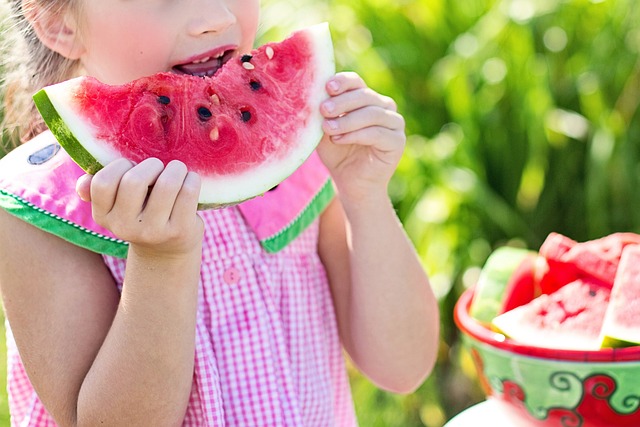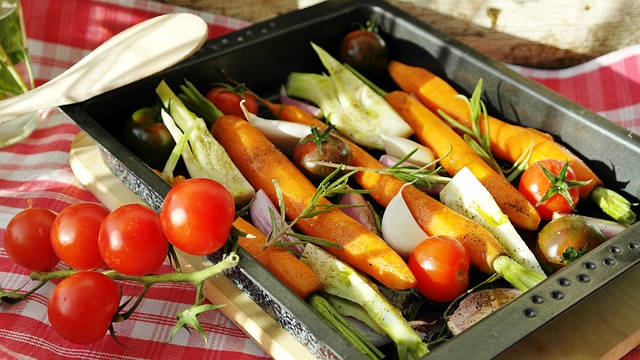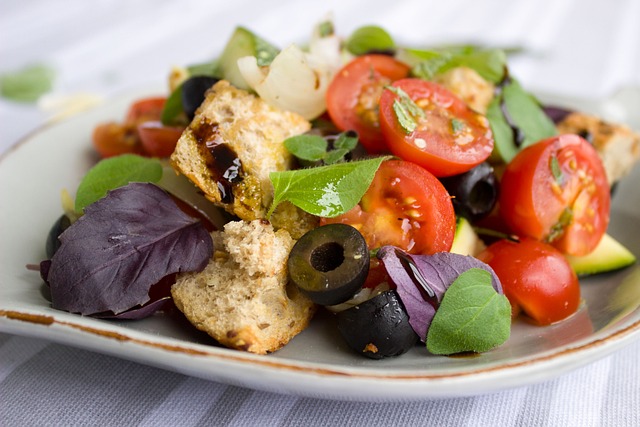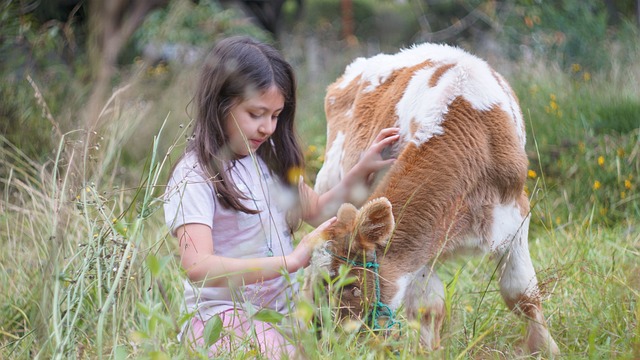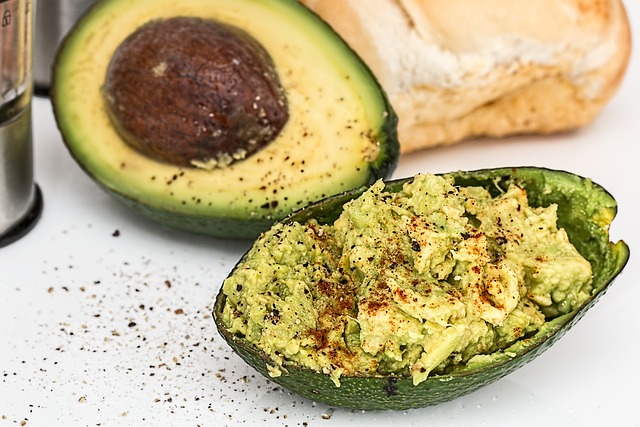Dealing with Social Pressure Regarding Kids’ Vegan Diet
In today’s society, the concept of a vegan diet for kids is becoming increasingly popular. Many parents are opting for plant-based diets for their children due to the potential benefits it offers, such as improved health, reduced environmental impact, and compassion for animals. However, along with this growing trend comes social pressure and challenges for parents when it comes to their kids’ vegan diet.
As more people adhere to omnivorous diets, parents who choose to raise their children on a vegan diet often face criticism and skepticism from family, friends, and even strangers. This social pressure can be disheartening and challenging to navigate, as parents strive to provide their children with a healthy and ethical lifestyle.
Table of Contents
Understanding Social Pressure
Social pressure refers to the influence and expectations that society places on individuals to conform to certain norms and behaviors. In the context of parenting choices, social pressure can greatly impact the decisions that parents make for their children. When it comes to raising vegan kids, parents often face specific challenges due to societal norms and beliefs surrounding food choices.
Parents raising vegan children may find themselves constantly defending and explaining their dietary choices to friends, family members, and even strangers. This constant scrutiny can be emotionally draining and cause feelings of isolation and judgment. Social pressure around food choices can be particularly intense because food is deeply intertwined with cultural traditions, social gatherings, and personal preferences.
Many parents raising vegan children experience pressure from peers, family members, and even healthcare professionals who may question the nutritional adequacy of a vegan diet for kids. This pressure can be overwhelming and may lead some parents to doubt their choices or feel the need to justify and defend their decision to raise their child on a vegan diet.
It is important to recognize and understand the unique challenges faced by parents raising vegan kids. By doing so, parents can better equip themselves with strategies to navigate social pressure, educate others about their choices, and ultimately provide the best possible care for their children.
Defining social pressure
Social pressure refers to the influence and expectations that society places on individuals to conform to certain norms and behaviors. It can greatly impact parenting choices, especially when it comes to dietary decisions for children.
Challenges faced by parents raising vegan kids
Parents raising vegan children often face constant scrutiny and judgment from others, including friends, family members, and even healthcare professionals. They may have to constantly defend their dietary choices and face questions about the nutritional adequacy of a vegan diet for kids.
Intense social pressure around food choices
Social pressure around food choices can be particularly intense because food is deeply intertwined with cultural traditions, social gatherings, and personal preferences. This can make it even more challenging for parents raising vegan children to navigate and address social pressures.
By understanding the concept of social pressure and the specific challenges it poses for parents raising vegan kids, it becomes easier to empathize with their experiences and support them in their efforts to provide a healthy and well-rounded vegan diet for their children.
Importance of Communicating with Your Child
As parents, open communication with our children is key in every aspect of their lives, and their vegan diet is no exception. It is essential to emphasize the significance of discussing their dietary choices openly and honestly, ensuring they understand the reasons behind their decision to follow a vegan lifestyle.
Educating kids about the reasons behind their dietary choices is crucial. They need to comprehend the environmental, ethical, and health benefits that come with a vegan diet. By sharing age-appropriate information, parents can empower their children with the knowledge they need to navigate conversations and defend their choices confidently.
When discussing veganism with your child, it is important to consider their age and maturity level. Younger children may benefit from a simplified explanation focused on animal welfare or the benefits of eating more fruits and vegetables. Older children can engage in more in-depth discussions exploring topics such as factory farming and the environmental impact of animal agriculture.
Parents can also encourage their children to ask questions and express any concerns they may have about their vegan diet. By creating an open and non-judgmental environment, parents can foster a sense of trust, which will ultimately strengthen their child’s commitment to their chosen dietary path.
In conclusion, communicating openly and honestly with your child about their vegan diet plays a crucial role in their overall well-being. By educating them about the reasons behind their dietary choices and engaging in age-appropriate conversations, parents can empower their children to confidently navigate social pressures and advocate for their own health and values.
Building a Supportive Network
When it comes to raising vegan children, finding a supportive network of like-minded parents and communities can make all the difference. Connecting with other parents who are also raising vegan children can provide valuable support and understanding. They can offer advice, share their experiences, and offer emotional support when dealing with social pressure.
One effective strategy for connecting with other parents is to join online vegan parenting communities or local vegan meet-up groups. These platforms provide a space for parents to share their journey, ask questions, and exchange valuable information. Being part of such communities not only offers a sense of belonging but also provides an opportunity to connect with individuals who are facing similar challenges.
Having a supportive network can help parents navigate the social pressure that often comes with raising vegan children. When faced with criticism or questioning, talking to other parents who have experienced similar situations can provide reassurance and guidance. They can share tips on responding confidently and offer different perspectives on how to approach discussions about veganism with others.
The benefits of having a supportive network extend beyond just dealing with social pressure. It can also be a great resource for recipe ideas, sharing vegan-friendly events, and discovering new products. Connecting with other parents can also provide opportunities for children to build meaningful relationships with peers who share the same dietary values.
In conclusion, building a supportive network is crucial for parents dealing with social pressure regarding their kids’ vegan diet. Finding like-minded parents and communities creates a sense of belonging and provides emotional support. Connecting with others who share the same values and face similar challenges can offer guidance and reassurance. Additionally, a supportive network can provide a wealth of resources and opportunities for children to form relationships with peers who share their dietary choices.
Equipping Yourself with Knowledge
When it comes to dealing with social pressure regarding your kids’ vegan diet, it is essential to equip yourself with knowledge. Being well-informed about the benefits and nutritional needs of a vegan diet for kids will not only give you confidence in your choices but also help you navigate criticism and questions more effectively.
There are numerous resources available to learn about the nutritional needs of vegan children. Books, websites, and reputable organizations can provide valuable information on how to ensure your child gets all the necessary nutrients while following a plant-based diet. Understanding the specific health concerns associated with veganism, such as ensuring sufficient protein intake or meeting vitamin B12 requirements, is crucial in addressing critics’ concerns.
By educating yourself, you gain the strength to face criticism and doubts head-on. Armed with knowledge, you can confidently explain the reasoning behind your child’s vegan diet and refute common misconceptions. Understanding the scientific evidence that supports the health benefits of a well-planned vegan diet can help you counter any skepticism with concrete facts.
Moreover, being knowledgeable about your child’s vegan diet allows you to address concerns about their growth and development. By understanding the potential challenges and ways to meet nutritional requirements, you can ensure your child’s well-being and provide reassurance to others. Sharing reliable resources and studies with skeptics can be a powerful way to show that you have taken the necessary steps to make informed decisions for your child.
In conclusion, equipping yourself with knowledge is crucial when facing social pressure regarding your kids’ vegan diet. This knowledge empowers you to confidently engage in discussions, address concerns, and advocate for your child’s well-being. By staying informed and informed, you can navigate social pressure with confidence and provide the necessary support and information to those who may have doubts or questions.
Responding to Criticism
When it comes to raising vegan children, parents may often find themselves facing criticism or negative comments from friends, family members, or even strangers. It is important to be prepared for these situations and know how to respond confidently. Here are some tips to consider:
1. Stay calm and respectful: It can be easy to get defensive or confrontational when faced with criticism about your child’s vegan diet. However, it is crucial to remain calm and respectful in discussions. Remember that everyone is entitled to their opinions, and responding with kindness can help diffuse tension and promote understanding.
2. Provide scientific evidence: When responding to criticism, it can be helpful to present scientific evidence to support your arguments. Many studies have shown that a well-planned vegan diet can provide all the necessary nutrients for children’s growth and development. Sharing this information can help educate others and alleviate concerns about nutritional deficiencies.
3. Educate yourself: Arm yourself with knowledge about the benefits and potential pitfalls of a vegan diet for children. Being well-informed about topics such as nutritional needs and potential health concerns will give you confidence when discussing your child’s dietary choices.
4. Share personal experiences: Personal stories can be powerful tools in changing minds and dispelling misconceptions. Share your own experiences and the positive impact the vegan diet has had on your child’s health and well-being. Hearing firsthand accounts can help others understand that a vegan diet can be a viable and healthy choice for children.
In conclusion, responding confidently to criticism regarding your child’s vegan diet is essential. By staying calm and respectful, providing scientific evidence, educating yourself, and sharing personal experiences, you can effectively navigate conversations and promote a better understanding of the benefits of a vegan diet for children. Remember, advocating for your child’s well-being is of utmost importance, and staying true to your beliefs will serve as a powerful example for your child and those around you.
Educating Others
When it comes to dealing with social pressure regarding kids’ vegan diet, one crucial aspect is educating others. By creating awareness and understanding among friends and family members, parents can help alleviate some of the skepticism and criticism they face. Education plays a pivotal role in breaking down barriers and misconceptions surrounding veganism.
It’s important to approach discussions about your child’s vegan diet with others in a gentle and respectful manner. Providing strategies for effectively discussing your child’s diet can help you navigate these conversations with confidence. Start by sharing your own knowledge and personal experiences. Explain why you’ve chosen a vegan diet for your child and the benefits you’ve observed. However, remember to listen to others and be open to their thoughts and opinions as well.
Emphasize the potential positive impact of educating others about veganism. By sharing information about the benefits of a vegan diet for children, you can inspire others to consider this dietary choice for their own families. Provide them with resources and credible information to support your arguments. Scientific evidence can be particularly persuasive when discussing the nutritional value and health benefits of a vegan diet for kids. By offering well-rounded and evidence-based explanations, you can help dispel unfounded criticism and promote a more informed discussion.
It’s important to remember that not everyone may be receptive to your efforts to educate them about veganism. Some individuals may hold deeply ingrained beliefs or have a limited understanding of the subject. In such instances, it’s essential to remain patient and respectful. Focus on planting seeds of knowledge and understanding, rather than trying to force others to agree with your perspective.
In conclusion, educating others about your child’s vegan diet is a powerful way to create awareness and foster understanding. By approaching conversations with openness and providing strategies for effective discussion, you can help break down barriers and promote acceptance. Emphasize the positive impact this education can have, not only on your child’s well-being but also on the wider community. Remember that change takes time, and by continuing to advocate for your child’s dietary choices, you are helping pave the way for a more compassionate and inclusive society.
Instilling Self-Confidence in Your Child
Building self-confidence in your child’s dietary choices is crucial when it comes to dealing with social pressure regarding their vegan diet. By instilling self-confidence in your child, you empower them to navigate and handle social pressure themselves. Here are some strategies to help you support your child in this aspect:
- Encourage open conversations: Create a safe and supportive environment where your child feels comfortable expressing their thoughts and concerns about their vegan lifestyle. Regularly engage in discussions about their dietary choices, listen attentively, and validate their feelings.
- Teach critical thinking skills: Guide your child to develop critical thinking skills to evaluate information and make informed decisions. Teach them to question the sources of criticism and discern between constructive feedback and baseless judgments.
- Lead by example: Display self-confidence in your own choices and values. When your child sees you standing firm in your beliefs, they will learn from your example and become more self-assured in their vegan lifestyle.
- Celebrate their choices: Acknowledge and celebrate your child’s commitment to their vegan diet. Recognize their efforts in making ethical and sustainable choices, and reinforce their self-confidence by highlighting the positive impacts of their dietary decisions.
Fostering self-confidence in your child’s vegan lifestyle not only helps them navigate social pressure but also has long-term benefits. It enhances their self-esteem, resilience, and ability to make independent decisions based on their values. By empowering your child, you provide them with the tools to confidently advocate for their well-being and educate others about their vegan choices.
In conclusion, nurturing self-confidence is a vital aspect of supporting your child’s vegan diet in the face of social pressure. By creating a safe environment for open communication, teaching critical thinking skills, leading by example, and celebrating their choices, you empower your child to handle social pressure themselves. This self-assurance contributes to their long-term well-being and enables them to assertively advocate for their vegan lifestyle.
Conclusion
In conclusion, parents who choose to raise their children on a vegan diet often face social pressure and criticism from friends, family, and even strangers. This pressure can be overwhelming and challenging to navigate. However, by equipping themselves with knowledge and building a supportive network, parents can effectively deal with this social pressure.
Effective communication plays a crucial role in overcoming social pressure. By openly discussing their child’s vegan diet and educating them about the reasons behind their dietary choices, parents can foster understanding and acceptance. Age-appropriate conversations about veganism can help children feel confident and knowledgeable about their diet, making it easier for them to handle criticism.
Building a supportive network of like-minded parents and communities is equally important. Connecting with others who are also raising vegan children can provide a sense of belonging and support. These communities can offer practical advice, share experiences, and commiserate with the challenges of social pressure. Together, parents can navigate through the comments and questioning and find strength in their shared experiences.
Equipping oneself with knowledge about a vegan diet for kids is crucial for standing strong in the face of criticism. Understanding the nutritional needs and potential health concerns related to a vegan diet can help parents confidently address any skeptics or doubters. By utilizing scientific evidence to support their arguments, parents can counter critique with facts, strengthening their position and beliefs.
When faced with criticism, it is essential to respond confidently while maintaining respect and calmness. Reacting defensively or aggressively will unlikely to change others’ opinions. Instead, providing well-researched information and calmly addressing concerns can help educate others about the benefits and values of a vegan diet for children. By focusing on education rather than confrontation, parents can create awareness and understanding among friends and family members.
Instilling self-confidence in children is another vital aspect of dealing with social pressure. By empowering their child to handle criticism and confidently advocate for their choices, parents can help their children develop resilience and self-assurance. Emphasizing the long-term benefits of their vegan lifestyle, such as compassion for animals and a healthier future, can strengthen their child’s commitment to their dietary choices.
In conclusion, parents should stay strong, be proud of their choices, and advocate for their child’s well-being. By effectively communicating, building a supportive network, and fostering self-confidence, parents can overcome social pressure and provide their children with a flourishing vegan lifestyle. It is essential to remember that each family’s dietary choices are unique and should be respected, empowering parents to stand firm in their decision to raise their children on a vegan diet.

